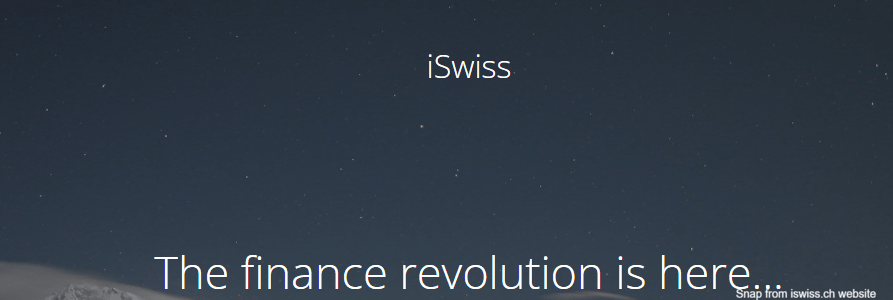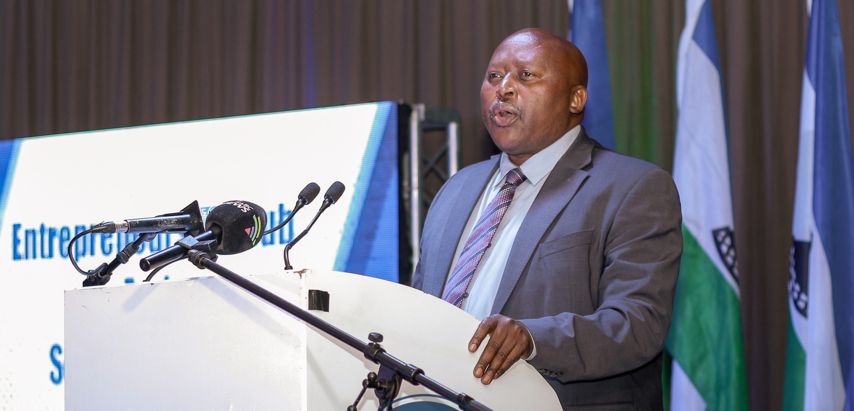Chris Mokolatsie
The lack of transparency and cancer of conflict of interest in public service involving major government contracts has once again reared its ugly head in Lesotho, with a reported suspicious-looking 99-year Special Economic Zones (SEZ) deal with iSwiss. According to the document titled Lesotho Special Economic Zones Policy 2024 – 2029 the Government of Lesotho is planning a 99-year partnership with a company called iSwiss, where the latter is granted an exclusive right to create and administer SEZ in Lesotho with a 75% stake in the venture and the Government of Lesotho owning the remaining 25%.
It seems to have become fashionable in recent administrations in Lesotho for Ministers to engineer these types of dubious mega deals signed on behalf of the Government of Lesotho and Basotho under suspicious circumstances with no proper due diligence and always ending with bitter consequences for the country.
The uproar about this deal for many Basotho arises from a recent experience and the fear they have of history repeating itself, and the government never learning from past mistakes. Many will recall the infamous 2018 botched deal between the Lesotho government and German solar company, Frazer Solar, which nearly cost the government of Lesotho the seizure of all its assets abroad by the German Company as compensation.
For some, this SEZ-iSwiss saga appears to have the hallmarks of the Fraser debacle. As one Facebook user put it “re sa tsoa futosa ke maru” a Fraser Solar debacle, when are we ever going to learn? As with that dubious ill-thought nature of the agreement that became the Frazer solar fiasco, where a sole government Minister featured prominently in it, here too, a single government Minister features prominently. While unashamedly stating that the now mysterious SEZ policy document cannot be “considered an official ministry document” true to his name Mr Shelile, chooses to ignore the obvious. His unexplained links to the main beneficiary of the planned deal which is led by the department and the opaque selection process followed to choose this company.
When dealing with these long-term government contracts where billions of Maluti are involved, transparency and effective conflict of interest management by the Minister is of paramount importance. I remind readers of the infamous Lesotho Highlands Development Authority (LHDA) corruption scandal that saw one of its chief executive officers charged with 16 counts of bribery and two counts of fraud and was eventually jailed.
The unexplained selection of the iSwiss Company has naturally raised concerns among many Basotho. Key questions include the selection process of this outfit and what due diligence the government made on iSwiss.
To understand this problem in its proper context it is important to remind ourselves what exactly are special economic zones (SEZ) or what is sometimes called Industrial zones, in a country and why countries like Lesotho may want to have them.
Simply put the rationale behind SEZs and why governments do them is to create a business-friendly environment in specific areas, to generate jobs, stimulate economic growth, and attract investment that might not otherwise come. In other words, these are designated geographical areas, akin to the firms at Maputsoe and Ha Thetsane. Businesses in different sectors in these zones are given favourable economic policies to promote trade, investment, and industrialization. These zones typically offer incentives like tax breaks, simplified customs procedures, relaxed regulations, and upgraded infrastructure to attract domestic and foreign companies.
In Lesotho, this function has traditionally been done by the Lesotho National Development Corporation (LNDC), a parastatal whose sole mandate is to promote and facilitate investment. I remind readers that besides their track record in this area, LNDC was also one of the key stakeholders that conducted the current feasibility study on SEZs that informed this current government policy on SEZs.
So one wonders why LNDC could not be entrusted with this important economic aim of government instead it would appear that the Ministry is hell-bent on reinventing the wheel with iSwiss. One wonders why. What could be the motive and who stands to benefit from this arrangement, for many Basotho under this current SEZ policy with iSwiss as the lead partner, it is certainly not we the people. This ill-conceived plan with this unknown entity that Minister Shelile met in Dubai, coupled with the lack of obvious reasons why LNDC, a local entity within the Government with expertise in this area is deemed not suitable to manage and lead this new phase of SEZs, leaves many questions unanswered, and Basotho wondering “e se ka mona maholi a patile maeba”.
So, why is the government appearing to be reinventing the wheel, passing a reputable state entity LNDC, with a known track record of dealing with bringing investors to the country? You decide.
If the government’s intentions are truly genuine about SEZs in the country, and not something else it needs to come clean on why iSwiss was better than LNDC and what track record they come with. Where else have they successfully partnered with any government?
As with the Fraser Solar contract where then Prime Minister Dr Moeketsi Majoro was forced to set up a commission to investigate that agreement, here too Prime Minister Matekane, if he is not complicit to this shameful deal must act. His government needs to come clean starting with what due diligence background check was done on iSwiss and publishing the findings of this report which determined its suitability, expertise, competence and capability to deliver SEZs in Lesotho.
The government must give the rationale for selecting only one company as the sole partner to the government to oversee and regulate SEZs beyond merely telling us that they submitted an unsolicited proposal. Who is the person involved in deciding to accept that unsolicited proposal from iSwiss?
Failure to answer these and many other questions will leave the public not only thinking that the government has something to hide, but that the Prime Minister and cabinet are complicit.
Prime Minister Matakene’s party RFP came into power promising Basotho that ‘seoesooeso” in government will end, and that integrity and accountability will be the hallmarks of his government. If getting a 99-year deal with the government after meeting a minister in Dubai is not seoesooeso, then I don’t know what is. Seoesooeso is not only about Basotho nationals getting employment offers in government under dubious circumstances where somebody knows someone but also about foreign nationals and companies getting preferential lucrative government contracts unfairly.
For me as a lifelong student of ethics, what is also of concern here is what this SEZ-iSwiss saga and Minister Shelile’s role in it and his justification of his role, is the greater issue of the behaviour and conduct of public officials which must be beyond reproach at all times.
At the heart of this saga is the question of integrity and professional ethics especially of our senior public service officials who are supposed to set the example from the top downwards.
What is most worrying is the public utterance of the Minister. I will just cite a few here to drive the point home. In his recent justification of this shameless embarrassing state of affair, Mr Shelile, without any shame of potential or perceptions of conflict of interest on his part, admits openly that he met iSwiss in Dubai, and also met them again in Lesotho when they arrived because as he put again without any shame, “they naturally came to my office first”.
The Minister further goes on to state on record that the company “submitted an unsolicited proposal” presumable and “naturally” one supposes for his attention and categorically tells us that this is normal behaviour. “This is common practice and there is nothing sinister or controversial about this process”. Now we know that iSwiss was or is now set for a 99-year deal on SEZ, a programme led and spearheaded by a Ministry in which Mr Shelile is in charge. You connect the dots. If this is not a conflict of interest in public office, I don’t know what it is.
In terms of essential fundamentals of good governance and ethical leadership expected in public service, which are currently the topic of much discussion in bicentennial discussions about the renaissance (tsosoloso) of the code of ethics of Mohlomi, ethical leadership of Moshoeshoe AKA seMoshoeshoe, and indeed ethics of botho in professional and private life, this deal fails at all these matrixes.
Quite simply, Minister Shelile, this sordid deal under your leadership fails the smell test. It stinks and smacks of impropriety at the most basic level of leadership not expected of those holding public especially a ministerial post, which is to manage robustly conflict of interest in public service from the top down to the bottom.
For your information Minister, a conflict of interest test does not only arise when there is a direct obvious conflict between the public duty and private interests of a public official, in which the public official has private-capacity interests, which could improperly influence the performance of their official duties and responsibilities. It also arises when there is public perception of such.
Questions around the selection of iSwiss which the Minister has failed to answer not only speak volumes, they point to questions of conflict of interest. For as long as this perception exists, questions will remain lingering about the potential pursuit of private or party interests in this deal that may have improperly influenced the choice of iSwiss as the sole partner in this SEZ deal.
As the public and voters, we expect our public officials especially senior government officials including Ministers, to not only be seen to be beyond reproach in respecting the letter of the law, especially with regard to potential conflict of interest, but the spirit of that law. Ends.

Your Trusted Source for News and Insights in Lesotho!
At Newsday Media, we are passionate about delivering accurate, timely, and engaging news and multimedia content to our diverse audience. Founded with the vision of revolutionizing the media landscape in Lesotho, we have grown into a leading hybrid media company that blends traditional journalism with innovative digital platforms.












